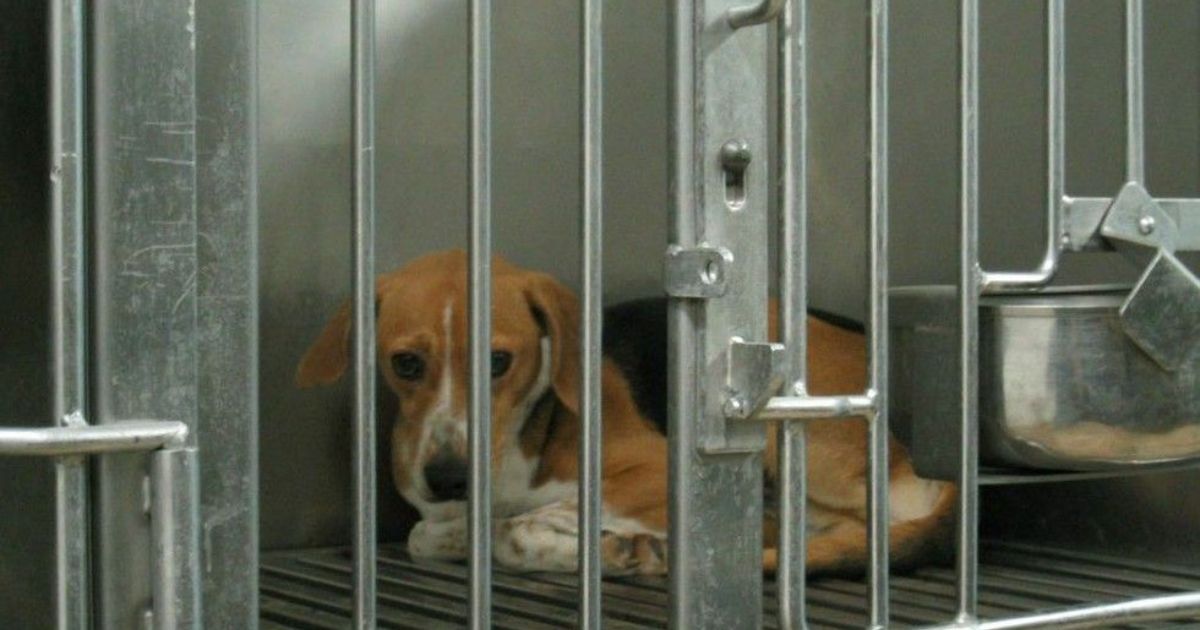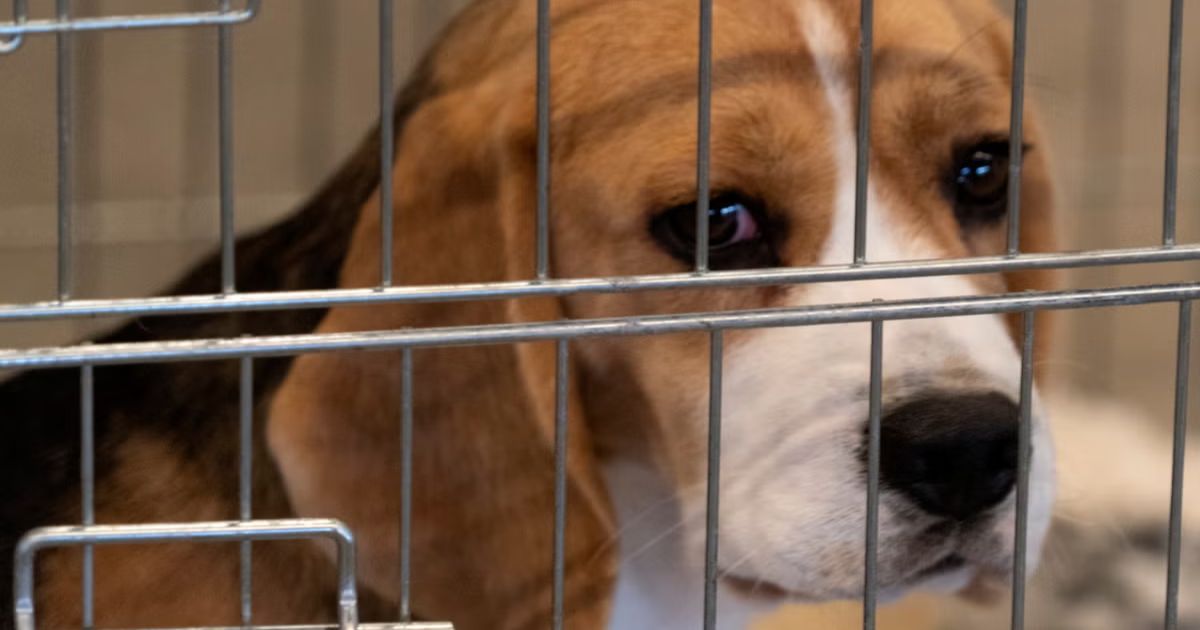Beagles, a breed known for their friendly and sociable nature, have long been utilized in lab testing for various scientific purposes. Their unique characteristics make them particularly well-suited for this role. Beagles possess exceptional sensory abilities, making them ideal subjects for experiments that require keen perception and detection.
Furthermore, their genetic predisposition to certain diseases and conditions makes them valuable models for studying human health and developing potential treatments. While the use of beagles in lab testing raises ethical concerns, their contribution to biomedical and pharmaceutical research cannot be denied.
Their involvement in toxicology, behavioral, and cognitive studies has provided significant insights into human physiology and behavior. Despite advancements in alternative methods, the beagle’s suitability as an animal model remains significant in scientific investigations.
Key Takeaways
- Beagles have a small to medium size, friendly and sociable nature, keen sense of smell, and adaptability to various testing environments, making them suitable for lab testing.
- Beagles possess acute sense of smell and hearing, allowing them to detect and distinguish scents and subtle sounds, making them valuable in scientific experiments involving odors or auditory stimuli.
- Beagles have a genetic predisposition for lab testing, with a strong sense of smell, high levels of sociability and adaptability, docile temperament, and convenient size for housing and handling, making them reliable models for studying human diseases and drug efficacy.
- The use of Beagles in lab testing raises ethical concerns regarding potentially harmful experiments, causing pain or distress to animals, and the necessity and morality of Beagle testing, leading to ongoing discussions about the ethics of Beagle testing in scientific research.
Beagle Characteristics for Lab Testing

Additionally, they possess a keen sense of smell and excellent tracking abilities, which are advantageous for studies involving drug detection or scent identification. These attributes contribute to the Beagle’s popularity in scientific research.
Beagles’ Sensory Abilities in Scientific Experiments
During scientific experiments, Beagles’ sensory abilities are crucial for accurate data collection and analysis. With their acute sense of smell, Beagles can detect and distinguish various scents, making them valuable in studies involving odors or substances that emit a specific scent.
Additionally, their keen sense of hearing allows them to detect subtle sounds, which is important in experiments involving auditory stimuli. These sensory abilities enable Beagles to provide reliable and precise data, enhancing the scientific research conducted using these animals.
Transitioning into the next section, Beagles’ genetic predisposition for lab testing further supports their suitability in scientific experiments.
Beagles’ Genetic Predisposition for Lab Testing
With their inherent genetic traits, Beagles possess a natural predisposition that makes them well-suited for laboratory testing.
- Beagles have a strong sense of smell, allowing them to detect subtle changes in odor that may indicate disease or toxicity.
- They exhibit high levels of sociability and adaptability, making them more cooperative and easier to handle during testing procedures.
- Beagles have a docile temperament, reducing the risk of aggression or unpredictable behavior during experiments.
- Their small to medium size makes them convenient for housing and handling in laboratory settings.
- Beagles have a stable and predictable physiology, making them reliable models for studying human diseases and drug efficacy.
Ethical Concerns Surrounding Beagle Testing
One primary concern surrounding the use of beagles in lab testing is the ethical implications of subjecting animals to potentially harmful experiments. While beagles are commonly chosen for their docile nature and easy handling, critics argue that it is unethical to intentionally expose these animals to testing that may cause pain or distress.
The ethical concerns arise from the belief that animals have inherent rights and should not be used as mere tools for human advancement. This has led to ongoing debates about the necessity and morality of beagle testing in scientific research.
Beagles as a Suitable Animal Model for Research

- Beagles have a similar genetic makeup to humans, making them useful for studying diseases and developing treatments.
- They have a docile and friendly temperament, facilitating handling and reducing stress during experiments.
- Beagles possess a keen sense of smell, allowing for research in areas such as drug detection and olfaction.
- Their small to medium size makes them easy to manage and house in laboratory settings.
- Beagles have a relatively long lifespan, enabling longitudinal studies.
The Role of Beagles in Drug Testing
Continuing the exploration of their suitability as an animal model for research, beagles play a crucial role in drug testing due to their unique physiological and behavioral characteristics. Their size and gentle nature make them ideal for handling and administering drugs.
Beagles also have a similar metabolism to humans, allowing researchers to better predict the effects of drugs. Furthermore, their keen sense of smell enables them to detect drug compounds in samples. Now, let’s delve into how beagles are utilized in toxicology research.
Beagle Testing in Toxicology Research
The utilization of beagles in toxicology research is integral to understanding the effects of drugs and chemicals on biological systems. Beagles are commonly used in toxicology studies due to their size, docile nature, and ease of handling. They have physiological similarities to humans, making them suitable for studying drug metabolism and toxicity.
Beagles also possess a high sensitivity to certain substances, allowing researchers to identify potential risks and develop safer treatments. Their use in toxicology research helps protect human health and ensures the safety of pharmaceuticals and other products.
Beagles’ Role in Biomedical and Pharmaceutical Studies
The integration of beagles into biomedical and pharmaceutical studies further enhances our understanding of drug development and treatment efficacy. Beagles, known for their docile temperament and ease of handling, are frequently used in various research areas such as pharmacokinetics, safety testing, and efficacy studies.
Their physiological similarities to humans allow for more accurate predictions of drug behavior and potential side effects. Beagles’ role in these studies is invaluable in advancing medical research and improving patient outcomes.
| Role in Biomedical and Pharmaceutical Studies |
|---|
| Pharmacokinetics |
| Safety Testing |
| Efficacy Studies |
| Predicting Drug Behavior and Side Effects |
Beagle Testing in Behavioral and Cognitive Research
Beagles play a crucial role in behavioral and cognitive research through their participation in testing methods. They provide valuable insights into the understanding of learning, memory, decision-making, and emotional responses. In this field, beagles are used to study various aspects of behavior, such as social interactions, aggression, anxiety, and addiction.
Their adaptability, intelligence, and friendly nature make them ideal subjects for such experiments. However, advancements in technology and alternative methods are emerging, offering potential alternatives to beagle testing in lab experiments.
Alternatives to Beagle Testing in Lab Experiments

As advancements in technology and alternative methods continue to emerge, researchers are actively exploring alternatives to the use of beagles in lab experiments for behavioral and cognitive research. These alternatives aim to provide more ethical and reliable data without the need for animal testing.
Some of the promising alternatives include computer simulations, in vitro studies using human cells, and advanced imaging techniques. These methods not only reduce the ethical concerns associated with animal testing but also offer more accurate and relevant results for human health and behavior.
FAQ’s
What Are Some Specific Characteristics That Make Beagles Well-Suited for Lab Testing?
Beagles possess specific characteristics that make them well-suited for lab testing. Their small size, gentle temperament, and exceptional sense of smell make them ideal for experiments involving drug testing, scent detection, and behavioral studies.
How Do Beagles’ Sensory Abilities Contribute to Their Usefulness in Scientific Experiments?
Beagles’ sensory abilities, including their acute sense of smell and hearing, contribute to their usefulness in scientific experiments. Their ability to detect and discriminate odors, as well as their keen sense of hearing, allows them to excel in tasks requiring sensory perception and discrimination.
Are There Specific Genetic Traits in Beagles That Make Them More Suitable for Lab Testing Compared to Other Dog Breeds?
Beagles are often used in lab testing due to their specific genetic traits that make them suitable for such experiments. These include their small size, docile temperament, and strong sense of smell, which enables them to detect subtle changes in substances being tested.
Conclusion
In conclusion, beagles are commonly used in lab testing due to their specific characteristics and sensory abilities that make them suitable for scientific experiments. Their genetic predisposition also plays a role in their selection as test subjects. However, ethical concerns surrounding beagle testing have been raised, leading to the exploration of alternative methods.
Despite these concerns, beagles continue to play a crucial role in toxicology, biomedical, pharmaceutical, and behavioral research. Considering the various factors involved, it is important to continually evaluate the necessity and ethics of using beagles for lab testing. What other animal models can provide similar scientific insights?







